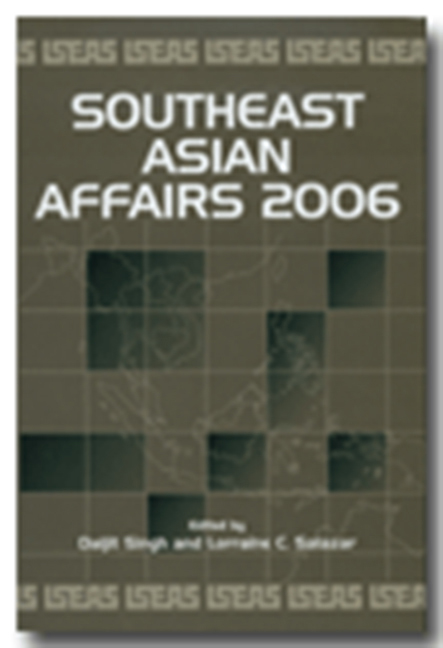Indonesia: Accomplishments Amidst Challenges
from Indonesia
Published online by Cambridge University Press: 21 October 2015
Summary
For Indonesia 2005 was marked by a number of achievements, especially in politics and security. The experiment with democracy that had been initiated with the fall of Soeharto in 1998 seemed to be stabilizing, albeit perhaps temporarily. The direct regional elections were by and large successful in electing governors, mayors, and district heads. The government of Susilo Bambang Yudhoyono (SBY) and Jusuf Kalla enjoyed some degree of success in dealing with the restive provinces, most notably Aceh. The tsunami disaster that struck the province on 26 December 2004 provided the impetus for peace talks between the rebel group GAM (Gerakan Aceh Merdeka, or Free Aceh Movement) and the Indonesian government. In foreign policy, strategic partnership agreements were signed with China and India, the two rising powers in the world. Jakarta was also successful in lobbying the US government to lift the arms embargo that had been put in place after the riots following East Timor's referendum in 2000. The death of terrorist leader Dr Azahari and the subsequent capture of members of the domestic terror cell network were the highlights of the fight against terrorism in Indonesia. The country's law enforcement agencies also made significant advances in the fight against corruption, one of Indonesia's foremost woes.
Despite these successes, the country still faced a number of tribulations, especially in the economic domain. The sky-rocketing of oil prices on the world market pushed the government to slash the subsidy for petroleum in the domestic market. This move created significant pressure on the population, and sharply reduced the popularity of Yudhoyono's administration. Additionally, in spite of the serious drive by the government to reduce corruption and bureaucratic red tape, foreign investors were still shying away from Indonesia, citing a lack of legal clarity and predictability as the reason.
On the whole, 2005 will be marked in Indonesia's history as the year of positive accomplishments, raised expectations, and continued challenges.
- Type
- Chapter
- Information
- Southeast Asian Affairs 2006 , pp. 93 - 110Publisher: ISEAS–Yusof Ishak InstitutePrint publication year: 2006

